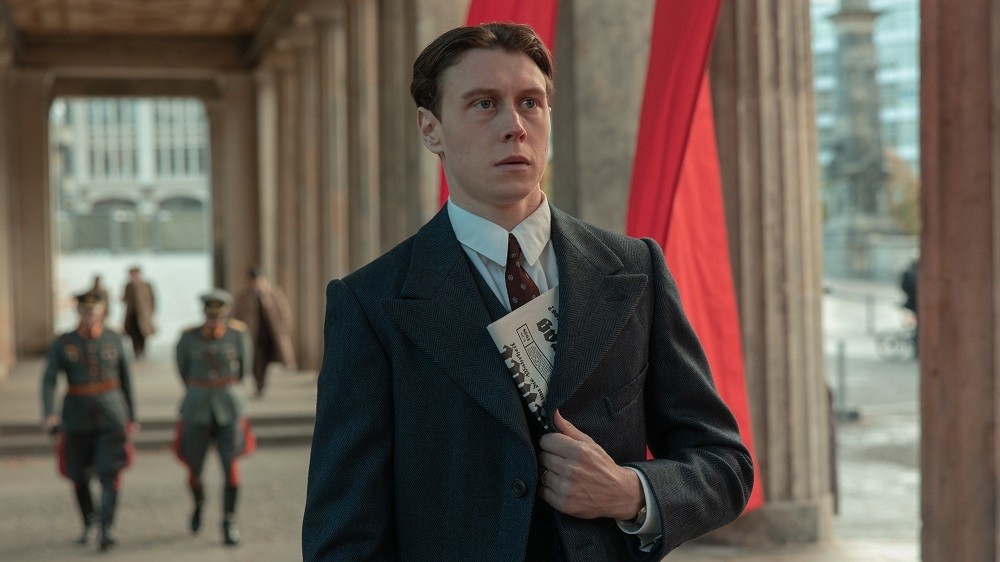Munich: The Edge of War

George MacKay stars in MUNICH: THE EDGE OF WAR. (Photo: Netflix)
As true-life prequels go, Munich: The Edge of War gradually builds suspense even for those familiar with some of the historical details, not to mention the well-documented ending.
However, using speculation and embellishments to fill in the narrative gaps, this political procedural also tends to oversimplify the sociopolitical complexities and moral dilemmas at its core.
The story follows Hugh (George MacKay), trusted private secretary to Neville Chamberlain (Jeremy Irons), the British prime minister during Hitler’s rise to power in the 1930s. As the intentions of the Nazis to annex much of Europe become clear, particularly in Czechoslovakia, the British must take their stance.
That leads Chamberlain to the negotiation table with Hitler (Ulrich Matthes) and other leaders at a summit in Munich, while a fearful Hugh tries to engineer a rogue plot behind the scenes.
Hugh’s former friend and Oxford classmate Paul (Jannis Niewohner), a German envoy who once sympathized with Hitler but has since come to despise him, reaches out with a document detailing Nazi secrets that could expose the extent of the country’s diabolical plans — if only it could reach the right hands.
At great risk, both men must pool their resources and reconcile their differences during desperately volatile circumstances.
MacKay (1917) provides a window into this world, paying tribute to the low-level diplomats who sacrifice their personal lives and beliefs for service to their country. Irons makes a compelling Chamberlain, even if the film takes an apologist stance for his notorious capitulations.
Illuminating some key moments during the buildup to World War II from multiple angles, rookie screenwriter Ben Power — who adapted a novel by Robert Harris (Enigma) — provides modest insight in the film’s more intimate, character-driven moments. The script depicts a time when entire countries could unite behind a common cause, even as ideological differences simmered beneath the surface.
The English-language debut of German filmmaker Christian Schwochow (The German Lesson) employs hand-held cameras, frequent closeups, and other visual gimmicks to amplify the sense of urgency around the proceedings.
Still, The Edge of War becomes more far-fetched in the second half while transitioning into more of an espionage thriller about unheralded heroes in times of political strife. Along the way, the unfocused approach feels like more setup than payoff.
Rated PG-13, 123 minutes.